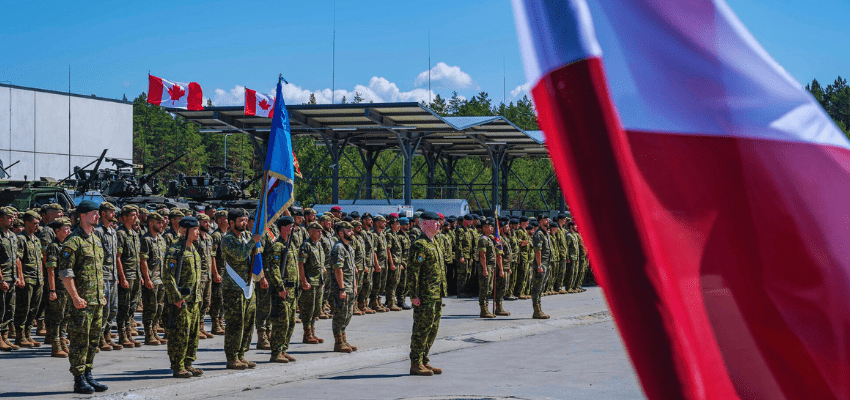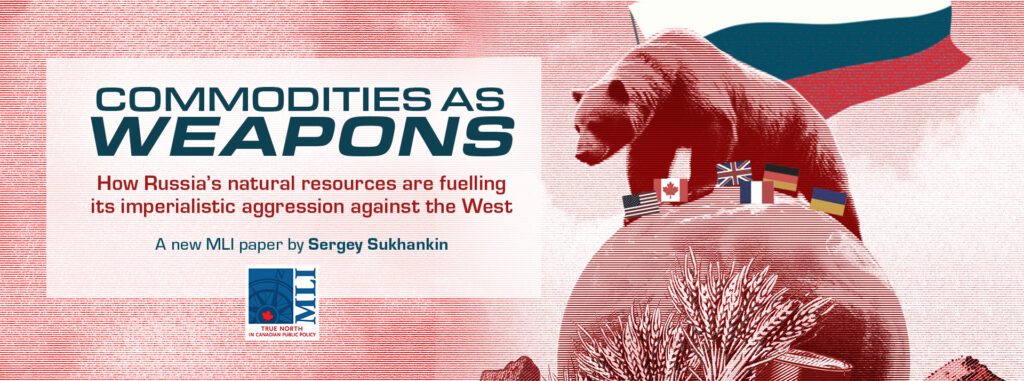By J.L. Granatstein, January 14, 2025
We are in a prewar era and it seems as if it’s 1937 all over again. The dictators in Moscow, Beijing, Tehran, and Pyongyang are on the march, the democracies are weak and divided, and Canada is unarmed. Making matters worse, the President-elect of the United States is threatening us with economic ruin. But for the first time in years, there seems to be widespread support for Canada doing more on defence.
Thus far, Pierre Poilievre, the presumptive winner of the next federal election, has uttered nothing more than the occasional sentence on national defence. But with Donald Trump threatening us and stating – correctly – that the US defends Canada and we do little, it is time for the Conservative leader to say what he will do when he takes office.
First, he must fix the procurement of defence equipment. Canada simply can’t afford to wait decades to buy pistols, purchase helicopters, or build ships. Then he should commit to rebuild our defence industries – especially our ammunition, Arctic gear, and armoured vehicle factories – to produce more, faster. He should also appoint a C.D. Howe-type powerful minister to ride herd on procurement and the defence industries. Howe, the “Minister of Everything” during the Second World War and the rearmament of the 1950s, was the prototype of the hard-driving leader we need to get matters moving again.
Now, Poilievre will know that Canada cannot produce all the equipment the Canadian Armed Forces needs. Given our shared continent and the need for the CAF to be interoperable with American forces, we should prioritize purchasing as much equipment as possible from the US. That will likely please Trump and help reduce the imaginary trade imbalance that seems to worry him. It will also get the equipment we need faster.
It would also gratify our American and NATO friends if Poilievre committed to fulfilling Canada’s two-decade-old pledge to reach the goal of 2 per cent of spending on defence – not by 2032, as Prime Minister Justin Trudeau stupidly promised, but by 2027. And since many NATO members are now saying that the goal should be 3 per cent, Poilievre should promise to strive for that benchmark by the end of the Conservatives’ first term in office. That, too, would please Trump – and might even prompt him to re-think his tariff threats.
Next, Poilievre should commit to fixing the recruitment crisis plaguing the Canadian Armed Forces. A crucial first step is to allow Canadians to enlist for basic training before completing the unacceptably slow background security check process. There are no secrets to be passed to Russia or China in basic training other than sergeants’ curse words. If any recruits are eventually flagged as security concerns, they can be quickly released before accessing any classified secrets.
Canada’s presumptive prime minister should state that he wants to bolster the CAF’s manpower to 100,000 regulars and 50,000 reservists by the end of his first four years in power – and that he will not only raise pay for the soldiers, sailors, and airmen and women but also build more housing on bases across the nation for service members with families. Those promises will boost recruiting and raise morale, which is presently in the dumps. And, moreover, he will cease underfunding the reserves and make sure it has the money for proper training with the right equipment (drone training would be especially useful).
Poilievre should also pledge to continue to support Ukraine with money and all the equipment we can spare. Ukraine’s fight, he should say, is our fight – indeed, it’s democracy’s fight. He should also declare that the Canadian troops in Latvia, a NATO trip wire force to discourage any further Russian aggression against the Baltic states, will be bolstered to 2,200 troops as promised and as quickly as possible.
He should acknowledge that the Department of National Defence has begun to roll back the regulations that allowed soldiers to dye their hair and beards any colour they chose and have facial piercings and tattoos, and males to wear skirts. And he should complete the process by saying that servicemen and women will be neatly groomed with appropriate hair and, if authorized, beards, and that service dress will be as laid down by the department. Doing that will go some distance to restoring the morale of those soldiers who have always believed in discipline and order as the requisites of their profession.
Poilievre should also say that he believes that the Royal Military College, in existence in Kingston, Ontario, since 1876, will remain a four-year degree-granting institution as will the Collège militaire royal de Saint-Jean, Quebec. RMC has been producing fine officers for 150 years and there are very few Canadian institutions that have been in existence that long. There is growing pressure in Ottawa to turn RMC into a 12 or 18 month military course much like Sandhurst in Britain and to send all regular officer trainees to get their degrees at civilian universities. That might work if the university staffs and students were not at root attitudinally woke and radically anti-military. Unfortunately, they are. Leave well enough alone.
Finally, Poilievre should appoint a strong defence minister – one who will have credibility in Cabinet, with the Canadian Armed Forces, and with the public. This minister, and the minister of procurement and defence industries, will be critical to rebuilding Canada’s standing with our allies and especially with Washington.
Now, how will Canada pay for all this? Our future Prime Minister must acknowledge that he will not be able to find enough money by cutting wasteful programs. And he intends to lower taxes so Canada can remain competitive for foreign investment, especially since Trump will lower taxes for well-off Americans and corporations. Thus, there is only one way to pay for a well-equipped, expanded Canadian military: he must borrow the money and increase the national debt. This will not be something any prime minister would want to do, but there is no alternative. Fortunately, Canada’s debt is in relatively sound condition compared to the US, France, Germany, and most of our NATO allies.
So when should these announcements be made? It is important that Poilievre move very soon. We are under economic attack from the incoming Trump administration, and a speech that laid out the points suggested here might actually give the Americans pause and make them re-think their intention to punish us.
There is more that will need to be spelled out, of course, not least on Arctic defence. At the very least, Washington will not be able to yell at us so loudly about being freeloaders unwilling to help defend North America.
J.L. Granatstein taught Canadian history for 30 years and was director and CEO of the Canadian War Museum. He sits on the Macdonald-Laurier Institute’s Research Advisory Board.







